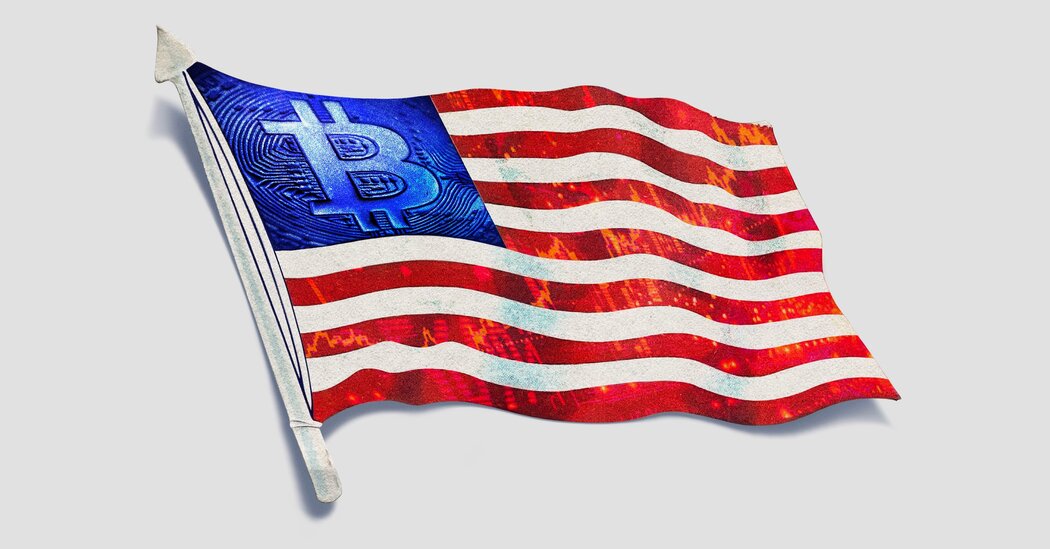The cryptocurrency industry has pushed President-elect Donald J. Trump to establish one, creating real political momentum behind the plan.
A pair of 50-page policy proposals laying out the plan in detail. Discussions about the specifics with President-elect Donald J. Trump and his advisers. And talks with cabinet nominees about how to pay for it.
On the eve of Mr. Trump’s inauguration, the cryptocurrency industry is pushing his incoming administration to execute an audacious plan that would have seemed unimaginable just a year ago: a government program to buy and hold billions of dollars in Bitcoin.
As he campaigned last summer, Mr. Trump vowed to create a federal “Bitcoin stockpile” that would serve as a “permanent national asset to benefit all Americans.” Bitcoin enthusiasts hailed the idea as potentially transformative, claiming that it would help reduce the national debt. Mr. Trump could still abandon the plan, and its details are under debate. But industry executives have spent weeks lobbying to shape the proposal, raising hopes that Mr. Trump might act soon after taking office.
In recent days, crypto executives have offered input to David Sacks, a venture capitalist whom Mr. Trump appointed to oversee crypto and artificial intelligence, on a possible executive order that covers several areas of crypto policy, three people with knowledge of the matter said. The Bitcoin stockpile is part of those discussions, two of them said.
“This could be the Day 1 initiative,” said Pete Rizzo, an editor at Bitcoin Magazine, an industry news publication. “It’s certainly an idea that has come a long way in a short amount of time.”
By some estimates, the United States owns as much as $19 billion in Bitcoin that it has seized from criminals over time, a stash that the government has recently moved to sell. Some crypto executives are calling on Mr. Trump to simply hold on to that Bitcoin, which he could most likely do with an executive order. Others are pushing a more ambitious plan in which the government would acquire tens of billions of dollars in new Bitcoin, building a “strategic reserve” similar to federal stockpiles of gold and oil. That amount of spending may require congressional approval.
